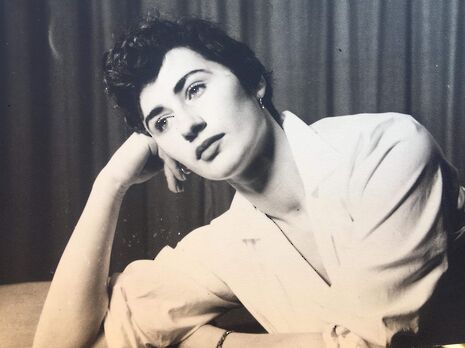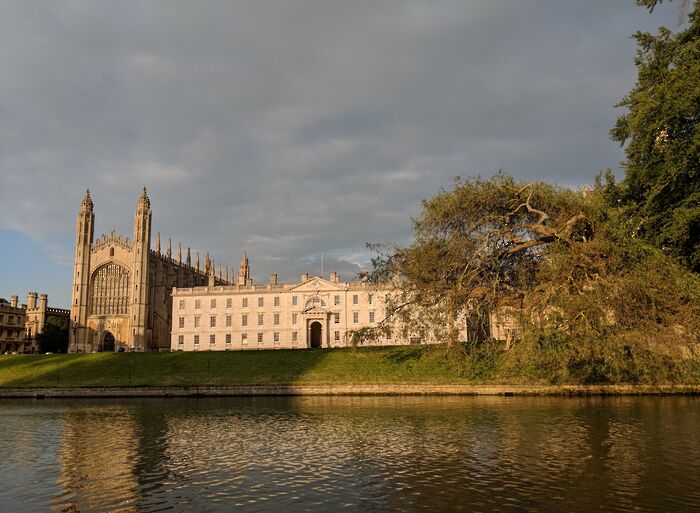Experiencing loss as a student puts things into perspective
Holly Platt-Higgins talks coming to terms with grief and her experience in being reminded of what really matters in life

The vast majority of us are incredibly lucky when we come to university, because for the past eighteen or nineteen years, life has been pretty kind to us. We're likely in good health and yet to suffer any kind of serious trauma; the world looks like a rather nice place.
My major concerns in first year didn’t much mature from those which concerned me in secondary school: Why do I have no money? How can I quickly acquire money doing as little work as possible? Do I like these people? Do they like me? Am I pretty enough? Am I on track? Why are these people pretending to enjoy this social situation?
And while a lot of these silly self-doubts and insecurities don’t entirely remove themselves from your consciousness by the time you reach your final year, they are, undoubtedly, overshadowed by far more important things.
I’m not talking about jobs or exams or partners; these are not the major players when it comes to the hardship you'll discover in your early twenties. The thing which really gets you, is family.
Because university is such an indulgent time, a time specifically allocated to you - you can enjoy yourself and fall in love and get drunk and learn things and meet interesting people and figure out who you are and what you want to do in the world - you slightly forget the rest of the world is still there. That you are, in fact, not the centre of the universe, comes as something of a surprise.

And what’s really bizarre is that while you’re growing up, some of the most important people in your life are getting old. The next ten years for all of us looks like: first jobs, housewarmings, adventures, weddings, babies. But for our parents and their parents, the next ten years don’t look quite the same. Most of us, won’t leave university without having lost someone truly, deeply important to us.
My grandma died over the summer. She had cancer, and, to her credit, she held on for far longer than any doctor expected her to. She was incredible. Even when she was in hospital she insisted on wearing huge black Chanel glasses and didn’t care about anything other than having her lipstick within reach at all times. She mostly ate strawberries and drank milk. She was scathingly rude about the other patients on the ward. She recounted stories and laughed and was always jolly whenever my siblings and I were there. She continued to ensure that plants were bought for her window boxes and that my mum ordered her skirts that she’d recently seen in magazines from M&S, and I admired her more than anyone else I’d ever known.
One of the things you don’t get taught in school, along with how to do your taxes, is how to deal with the people you love dying. It’s funny — I think when she first died, I just pretended she hadn’t. And I suppose that was far easier to do when I was at home and surrounded by family, who needed me but who were also experiencing the same thing as me.
Coming back to Cambridge, I didn’t know how to fit grief into my timetable for term. So, again, I didn’t, I just tried to ignore it. It was only when I noticed the other day, that every single background picture I have, on my laptop, my phone, my notebook, was her. A picture of my Grandma from when she was my age that I had, without thinking, placed somewhere where I had to see it at least 20 times a day. Subconsciously, I clearly hadn’t finished processing the situation.
Cambridge terms always move at an incredibly fast pace and most days you barely have time to blink
Cambridge terms always move at an incredibly fast pace and most days you barely have time to blink. I seem to spend my entire life writing lists and frantically trying to cross things off as quickly as possible. But, there are some things which you can’t really consider finished, or cross off a list, no matter how much else you have going on.
It is somewhat ironic that for a lot of us, our busiest years at Cambridge will coincide with some of our biggest emotional undertakings. (The black-comedy of my spending this term studying tragedy, exploring the capacity death and bereavement has to affect people, has not been lost on me.) And while it is impractical to wallow and let certain emotions consume you or your time here, it is also deeply unwise to ignore their presence in your life.
Cambridge will teach you a lot of things and the world will teach you far more difficult things. But, although we often forget it, these two places are not mutually exclusive. As we travel through our degrees, slowly beginning to encroach on the real world, the real world and those real problems are also beginning to move closer to us.
Obviously, there’s nothing we can do to prevent this. It is however worth making a conscious effort to create a space for reality, the things affecting you on a personal level, to comfortably exist within your academic life. Even in third year, it is very easy to forget that Cambridge is not actually a bubble. You cannot separate your home life out from your life here and I don’t think trying to would be a good idea. All you can do it try to make the two coexist in a functional way.
So, maybe instead of asking people how their dissertation is going or if they’re heading to that event on Thursday night, we should be asking people - asking ourselves - if we’re okay. Because, although it’s extremely easy to forget here, keeping track of your emotional status is far more important than keeping track of your supervision timetable or your academic progression. The world isn’t going to stop for you, but just occasionally, it’s very important that we stop and give ourselves time to consider our worlds outside Cambridge.
 News / Caius mourns its tree-mendous loss23 December 2025
News / Caius mourns its tree-mendous loss23 December 2025 News / Clare Hall spent over £500k opposing busway 24 December 2025
News / Clare Hall spent over £500k opposing busway 24 December 2025 Comment / The ‘class’ of Cambridge24 December 2025
Comment / The ‘class’ of Cambridge24 December 2025 Comment / Yes, I’m brown – but I have more important things to say22 December 2025
Comment / Yes, I’m brown – but I have more important things to say22 December 2025 Interviews / Politics, your own way: Tilly Middlehurst on speaking out21 December 2025
Interviews / Politics, your own way: Tilly Middlehurst on speaking out21 December 2025









